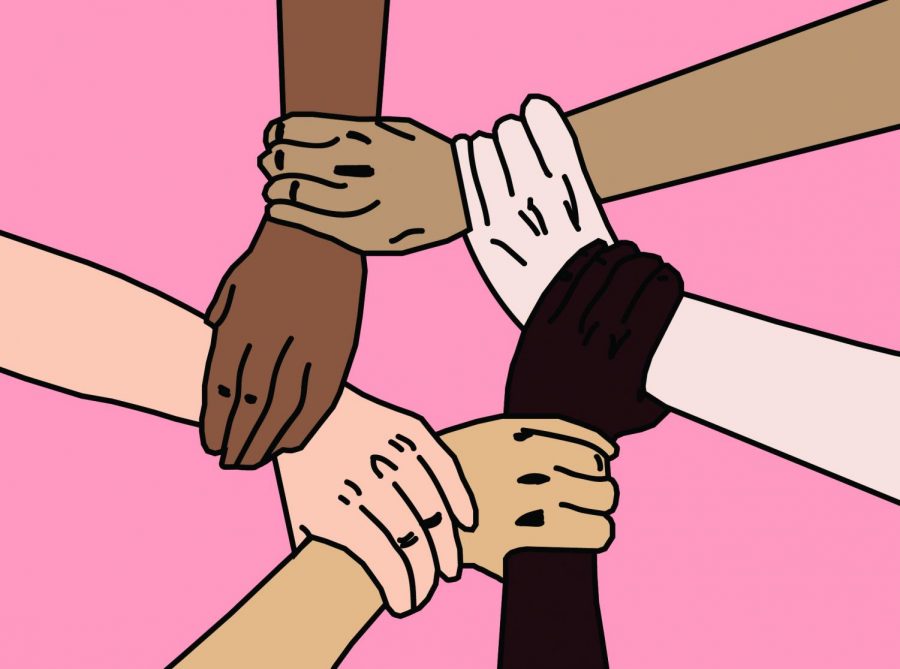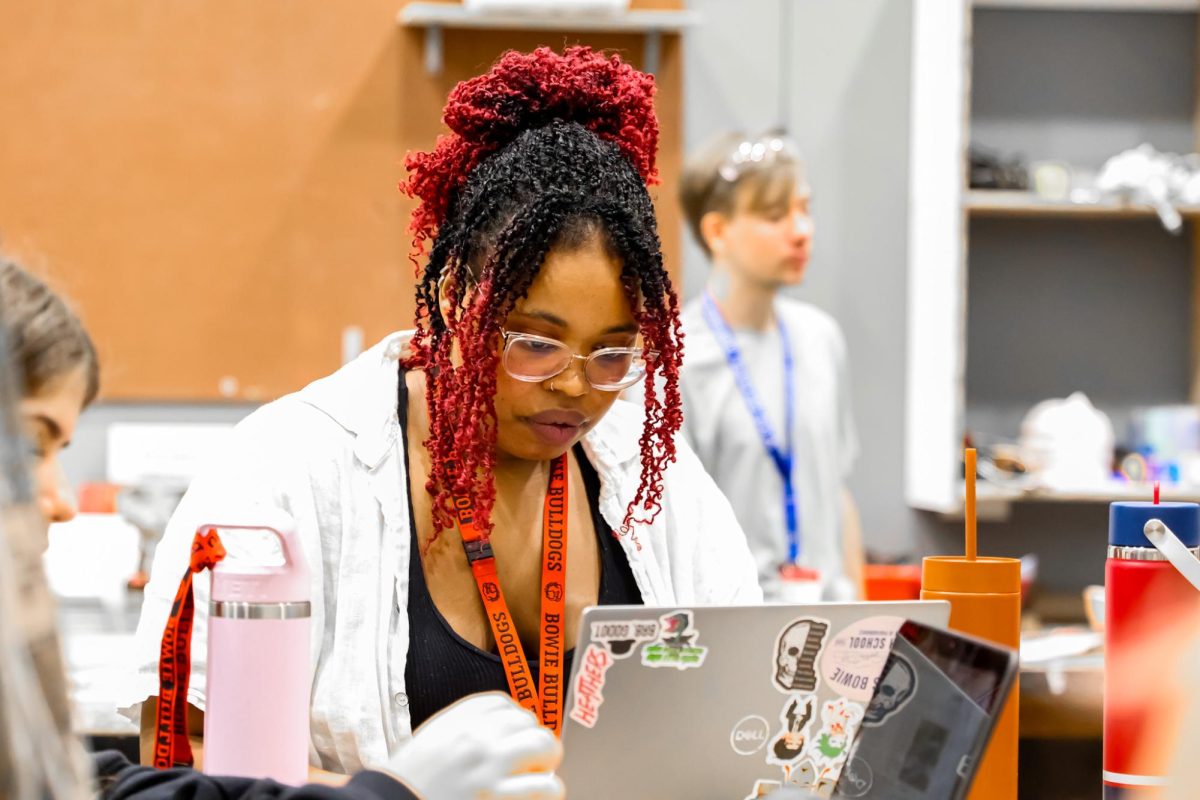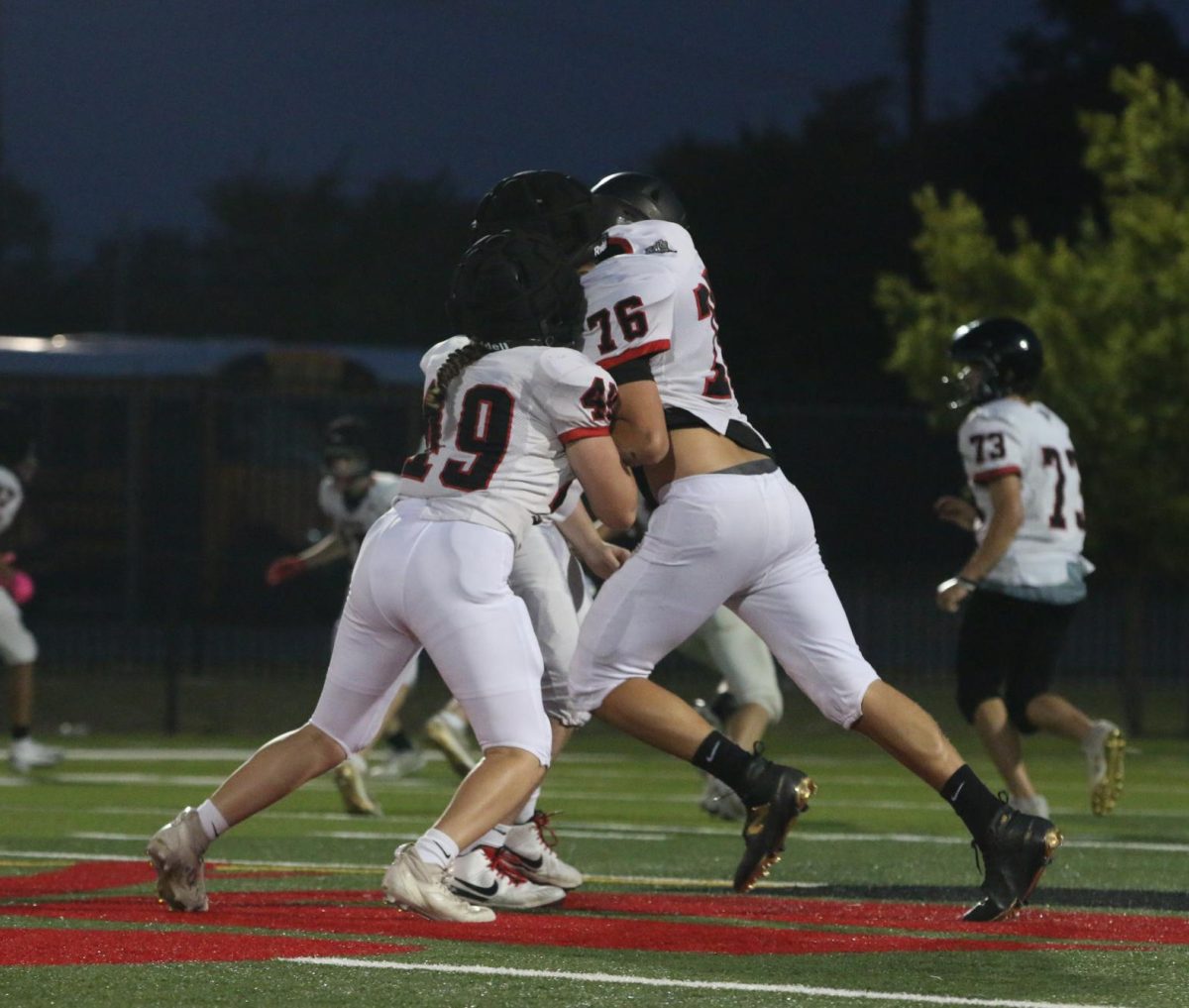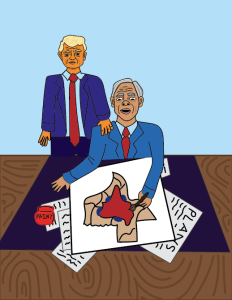New class offering: Ethnic Studies
Recently added course celebrates diversity and educates students on global cultures
Hands hold each other by the wrist, symbolizing unity as they are all different ethnicities.
October 16, 2019
Imagine walking into a high school classroom to see a community of students as diverse as a field of wildflowers. Within this community, students can freely share their opinions, beliefs, and values. In its inaugural year, a new class at Bowie has empowered this vision to become a reality.
Carlen Floyd is the teacher of the new Ethnic Studies class, an elective that encourages active discussion about minority groups and oppression in America.
“Ethnic Studies in some ways, I feel like, is mislabeled because it is the study of identity and marginalization, and it is not always ethnically based,” Floyd said. “It is the study of people who have typically been considered less than, why they have been considered as such, and the social, economic, and political ramifications of such beliefs.”
In addition to ethnic groups, the Ethnic Studies curriculum includes LGBTQ+ and religious communities.
“This type of education is important because it helps you understand who people are and how you can interact with them,” senior Liam Kornacki said. “It teaches you that you do not have to be scared of someone just because they are different from you.”
As of the 2019-2020 school year, the Ethnic Studies course is required to be offered across all AISD high schools.
“Look at the AISD demographics, we have populations that deserve to have more emphasis than a paragraph or chapter in a textbook,” Floyd said. “When we decided to offer [the class] to Bowie, I went and started recruiting because I wanted this to happen.”
Senior Mariana Ramirez felt compelled to enroll in the class because of the new perspectives and discussions it could offer.
“Being Hispanic, I have never really seen my culture thoroughly represented in school or very much in general,” Ramirez said. “I thought this class would be a great way to learn more about my own culture and the cultures of others.”
As the class challenges student’s knowledge of various cultures, the curriculum also questions the foundations behind the American identity.
“It is probably the most challenging class I have had when it comes to thinking about who you are, what you have done, and what you are planning to do,” Kornacki said. “I think that this is an education that people may not want to learn, but the truth is, until we are educated, we have unwarranted biases that are in our life.”
In 2018, the State Board of Education approved a statewide Ethnic Studies course that should be implemented by 2023-2025.
“We are looking at historical oppression and discrimination and how that leads to current problems in all aspects and levels of society,” Floyd said. “Awareness is where it starts, and understanding can help us imagine and act to change the world.”
According to DataUsa, 160,985 people currently work in careers affiliated with ethnic studies.
“I would argue that this is probably one of the most important topics to learn about, not just for what it teaches you, but for what you do with people in your life,” Kornacki said. “If I had to say that any class has given me confidence that my generation is going to have a bright future, it is this one.”
As a member of the Multi-Cultural Appreciation Club, senior Anamarie Jarmon-Booker understands how the knowledge acquired in ethnic studies can apply to the world.
“If we learn about people’s ethnic backgrounds, then it can help everyone around the world understand one another far better,” Jarmon-Booker said. “I’m friends with several folks in New Zealand and I’ve learned so much about their life and culture just by conversation.”
Within the first few weeks of school, Floyd set aside time to develop a list of norms that could create a comfortable and supportive environment in the class.
“The [class] presentations [have] had so much emotion going into them and we are so proud of the people who share their opinions,” Kornacki said. “[Presenters] were scared and nervous about being judged, but then the class surprised them, as they did with me, with kindness and relatability.”









